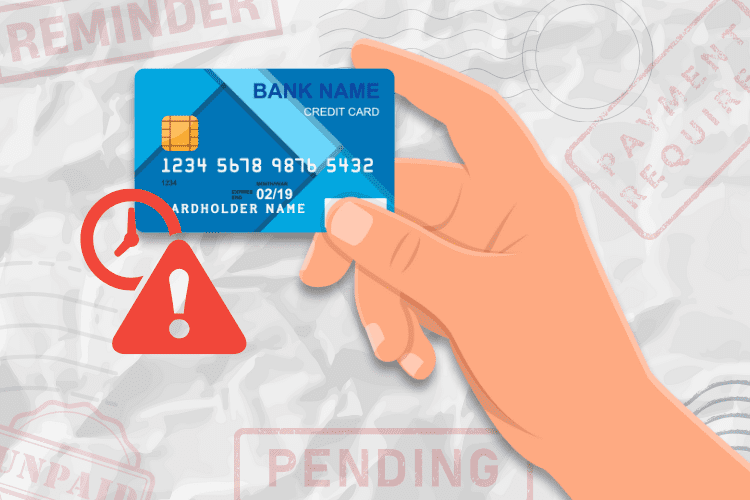7 Essential Personal Finance Stats That’ll Change Your Perspective

Undoubtedly, most of us are finding it hard to keep up financially.
We get paid, buy some things, pay the bills, and our bank account is back to square one. It’s tough out there.
But getting smart on some key money stats can push you to take control of your finances for good. Let’s review recent eye-opening numbers showing how Americans handle their money!
1. Roughly 60% of Americans don’t have a budget
Let’s start with something basic: budgeting. Setting up a monthly spending plan is Money 101.
But 6 out of 10 Americans don’t use one.1 They don’t know what they spend on food, bills, fun, or anything else. Unsurprisingly, many who don’t have a budget also lack a strategy for handling surprise expenses or saving for the future.
Trying to manage money without a budget is like driving somewhere without Google Maps or Waze. You have no idea where you’re going, but still hope you’ll get there somehow.
While creating (and sticking to!) a monthly budget may seem challenging, having one will help you understand exactly what’s coming in and going out each month.
2. A third of Americans have zero retirement savings
What does your dream retirement look like? Traveling to Europe every summer? Starting a small business? Buying that retirement home in Italy? Whatever it is, saving enough to fund these dreams should be your priority.
Unfortunately, 1 in 3 Americans have no savings for retirement2 and haven’t started putting money away for their later years. Many will be forced to work well into their 60s, 70s, and beyond.
Most money experts recommend saving 10-15% of income for retirement as early as possible. Despite these recommendations, most people simply aren’t putting away enough.
People are also living longer than ever; soon, a person’s average retirement years may last decades. Those empty savings accounts will leave millions of seniors flat broke with only Social Security to rely on.
The time to start funding your retirement is now, even if you can only save a little bit. Use automatic transfers from your paycheck into investment accounts like a Roth IRA, set it, and forget it.
You can build a solid retirement fund over time through patience and self-discipline.
3. Roughly 8 out of 10 Americans live paycheck to paycheck
Nothing beats the excitement of getting your weekly or monthly paycheck. To celebrate, you’ll go out, treat yourself, and maybe even splurge more than you expected.
Everything seems great until you realize all that money you made is long gone.
If this is your case each month (or week), you’re definitely not alone. 8 out of 10 Americans live paycheck to paycheck;3 some even go broke before their next payday.
Break this stressful paycheck-to-paycheck cycle by forcing yourself to save a part of it each time you get it. Automate it so the money transfers into a separate savings account before you can spend it.
Building a small cash cushion prevents desperation when unexpected stuff pops up and may even motivate you to have bigger money goals.
4. Almost half of Americans would need to borrow to cover a surprise expense
Everyone faces some emergency at some point, whether it’s a car repair or a medical
bill.
But would you have the cash on hand to handle an unexpected expense? 44% of Americans say they’d need to borrow money4 or sell something to cover a $400 emergency. That really shows the lack of emergency savings most of us have.
If you’re part of this statistic, building an emergency stash should be your #1 goal for this year. It’s your security blanket for when surprise expenses come up. Knowing you have a safety net if something happens will also help you stress less.
Even $500 or $1,000 in a high-yield savings account is a start. Add a little from each monthly paycheck, and watch your safety net grow!
5. Americans have 3 credit cards on average
Some of us really love our plastic money. In fact, the average American has an average of 3 credit cards5 in their wallet.
But if you take too long to pay your credit card bill, your financial health can go downhill quickly. With wild interest rates of 15-25%, balances swell fast. Miss some payments, and your credit score tanks, too.
It’s wise to have a card or two for convenience and to build your credit history. But avoid debt by paying balances off in full each month. If you’re carrying a balance, always pay more than the minimum to pay everything off as early as possible.
6. 95% of Millennials save less than what they should
Remember those depressing stats about Americans having no retirement savings?
Unfortunately, most Millennials are far from meeting their goals, with nearly 95% not saving enough for retirement.6 The problem essentially boils down to not prioritizing retirement early on.
It’s natural to want to focus on more immediate things like student loans or saving for a home. But here’s the thing: the earlier you start saving for later, the more compound interest works its magic.
Even just $50 or $100 monthly in your 20s and 30s will add up over the next few decades.
7. Almost half of college grads aren’t making their loan payments
Did you know that half of college grads aren’t making payments on their student loans? That’s around 7 million borrowers who are delinquent or in default.
College costs have skyrocketed, saddling graduates with massive debt burdens. The average 2019 graduate had over $28,000 in loans,7 and many owe $50,000 or more.
For those who are underemployed or have an entry-level salary, huge debts like college loans can become overwhelming. Former students feel they do not have enough left over each month to make loan payments and cover living costs.
But you don’t need to let student loans haunt you forever. Live below your means and focus as much cash as possible toward slaying that debt.
The earlier you do it, the more money you can free up for other life goals.
The Bottom Line
Don’t just resign yourself to living paycheck to paycheck or freaking out during financial curveballs.
Use these stats as a reference to rethink your budgeting, savings goals, and retirement planning. Small steps today snowball into absolute financial freedom tomorrow!
Read more:
- Want A High-Yield Savings Account? Here’s How To Choose The Best One
- 50 Legit Ways to Make Extra Money Online This Month for Beginners
Sources:
1CNBC – People Hate Budgeting
2Yahoo – How Much Money to Save for Retirement
3Forbes – Majority of Americans Live Paycheck to Paycheck
4CNBC – Many Americans Cannot Pay for an Unexpected $1,000 Expense
5Capital One Shopping – Average Number of Credit Cards Per Person
6Savology – Americans are Struggling Financially
7The Retirement Group – College Cost Data









